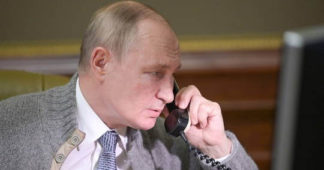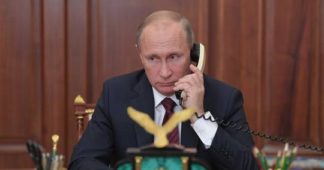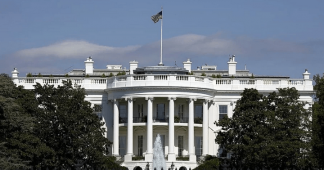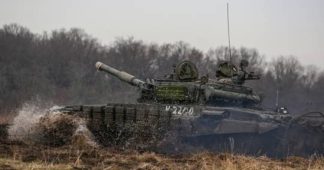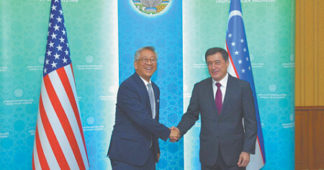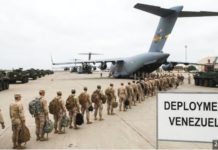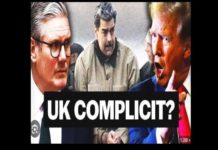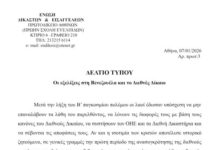Presidential aide Ushakov says Moscow is getting rid of ‘illusions’ to become part of Europe
By Elena Teslova
06.12.2022
The goal of multilateral formats developing in Eurasia is cooperation, not confrontation, a Russian presidential aide said on Tuesday.
Speaking at Primakov Readings, an international forum, in Moscow, Yury Ushakov said the formats of the Shanghai Cooperation Organization (SCO), Eurasian Economic Union (EEU), and Association of South East Asian Nations (ASEAN) are aimed at “joint harmonious development, real cooperation, and not confrontation like NATO.”
The countries of Eurasia are forming a new world majority that defends just and universal principles, Ushakov said, adding that Russia supports and stimulates the global trend towards multipolarity.
“Eurasia has an impact on the fact that international relations as a whole are consistently evolving towards multipolarity. Russia supports and stimulates this main trend, as evidenced by the reorientation of our foreign policy that is taking place before our eyes,” he said.
According to Ushakov, Moscow will continue this policy together with its “partners and friends,” with those countries that “value their sovereignty and prefer cooperation without senseless confrontation” and are “alien to Russophobia.”
“We can already say that a new powerful, constructive force is being formed in the Eurasian space, the so-called world majority, which defends just and universal principles and approaches,” he said.
The approaches developed in Eurasia are aligned with the interests of such regions as Africa and Latin America, which also do not accept modern forms of neocolonialism or a rules-based order, Ushakov added.
Ushakov said Russia has never become part of Greater Europe and now is getting rid of “illusions” about it.
“If earlier many of us talked and believed in the possibility of implementing together with the Europeans the precepts of Charles de Gaulle about building a common space from Lisbon to Vladivostok, now it becomes clear to everyone that this project failed. Even in the EU, they gave up on it, especially since the Americans, to put it mildly, did not really contribute to its implementation.
“We have what we have. Three decades after the collapse of the Soviet Union, Russia has not become an integrated part of Greater Europe. Russia has not received an “apartment” in a pan-European house. We were not allowed to do this and we ourselves now understand that these expectations and prospects were, in general, quite illusory. We are now moving away from such illusions,” he said.
We remind our readers that publication of articles on our site does not mean that we agree with what is written. Our policy is to publish anything which we consider of interest, so as to assist our readers in forming their opinions. Sometimes we even publish articles with which we totally disagree, since we believe it is important for our readers to be informed on as wide a spectrum of views as possible.

